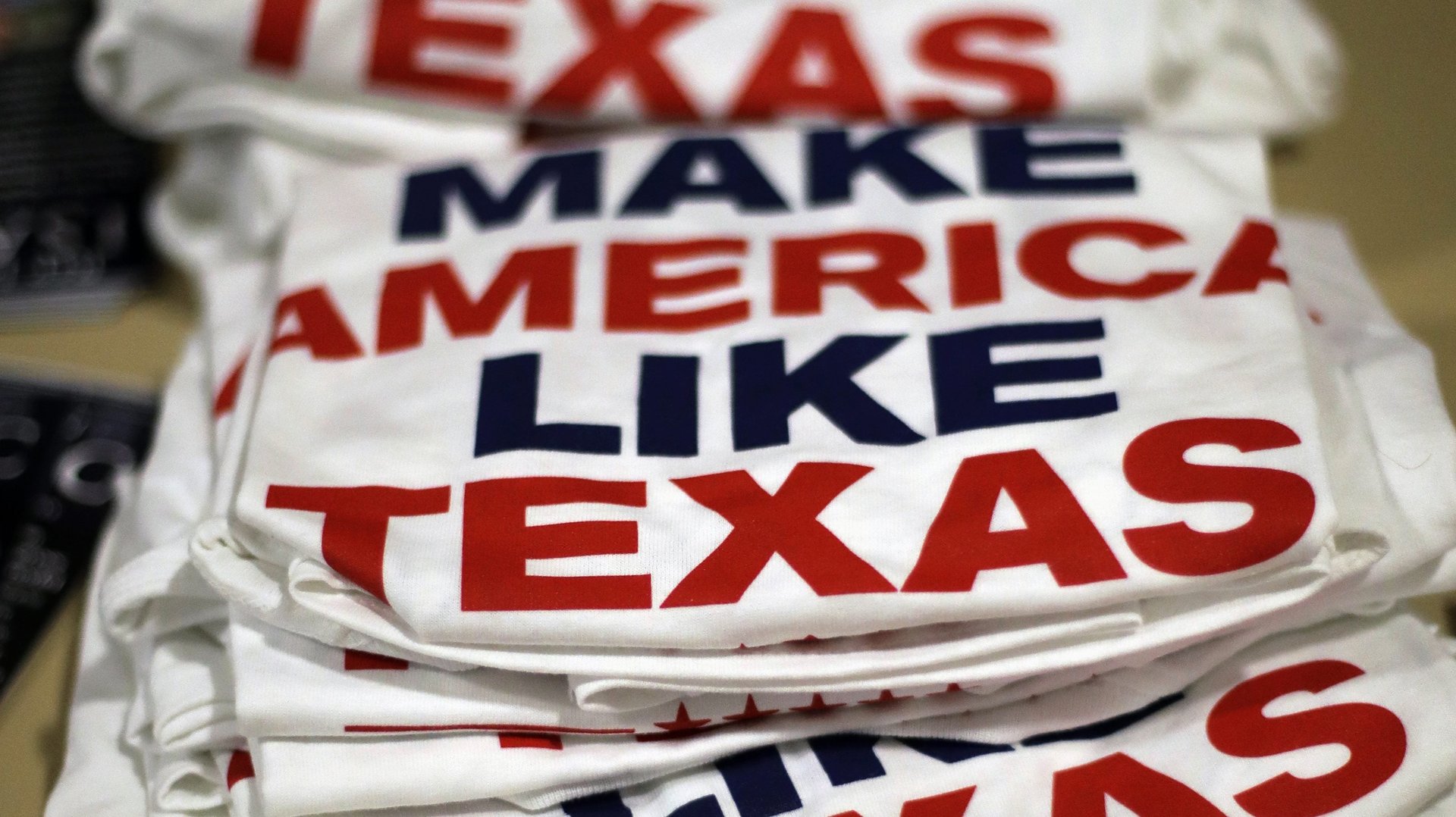Democrats finally have a shot in Texas—but they’re fighting each other for it
Primary elections in deeply Republican Texas have become the latest testing ground for Democratic strategy in the Trump era.


Primary elections in deeply Republican Texas have become the latest testing ground for Democratic strategy in the Trump era.
The Lone Star state is the first to hold primaries in 2018. On the ballot are several prominent offices, including governor, US senator, and all the state’s seats at the US House of Representatives.
The fact that many of these races have attracted numerous Democratic primary candidates is unprecedented. In past elections, Democrats skipped out some contests altogether, simply because they had zero possibility of winning against Republicans.
Trump’s unorthodox brand of politics has altered those dynamics. This time around, Democrats stand a chance, however slim, of snatching some key US House seats. A single win would be immensely helpful in the party’s quest to wrestle control from Republicans.
The high stakes have been great for turnout. Registered Democrats are energized. In early voting, they showed up at the polls at much higher rates than in the past, surpassing their Republican counterparts and making Republican leaders nervous.
But fear of squandering this rare opportunity is also generating internal strife. Democrats can’t agree on what type candidate is most likely to succeed or how. Who is most likely to capture fed-up Republican voters in wealthy suburbs? Can a Hispanic candidate attract enough Hispanic voters to the polls to make a difference? Can someone aligned with Vermont senator Bernie Sanders make inroads anywhere in conservative Texas?
Those are the kinds of questions Texas Democrats are weighing at the polls today. In the coming months, Democratic voters elsewhere will face the same questions in primaries across the country. Here’s a look at one crucial race that reflects the shifts in Texas politics and the choices before voters.
Texas’s seventh congressional district
Some of Democrats’ best chances this year are in conservative urban pockets and adjacent suburbs such as District 7. The district, which encompasses some wealthy Houston enclaves, has been in Republican hands since 1966, and is currently occupied by Republican John Culberson. Donald Trump put the solidly Republican area into play—it narrowly went for Hillary Clinton during the 2016 presidential election.
There are seven candidates running in the primary race, one of the most bitterly contested in this cycle. In a rare instance of intra-party attack, the Democratic Congressional Campaign Committee has openly campaigned against one of the candidates, Laura Moser. It accused her of being a “Washington insider” and of funneling campaign money into her husband’s political consulting firm.
Moser, a political activist and former journalist, is married to Arun Chaudhary, the creative director of the Bernie Sanders 2016 campaign for presidency. Our Revolution, Sanders’ grassroots group, is supporting her.
Others believe there are better Democratic candidates to defeat Culberson. The Houston Chronicle endorsed Jason Westin, a cancer researcher and doctor who’s running on a platform of injecting science into policy debates, and Lizzie Pannill Fletcher, a business lawyer and Planned Parenthood volunteer. “Both of them exude an intelligent and level-headed pragmatism that will appeal to the moderate voters of this district, whose support Democrats will need if they’re serious about defeating Culberson,” the local paper wrote.
Others in the race include Alex Triantaphyllis, a former Goldman Sachs analyst who runs the immigration division of community development non-profit, and Ivan Sanchez, a 30-year-old former congressional staffer who is courting the Hispanic vote.
The crowded field means that a runoff is likely unavoidable. In order to win the party’s nomination, a candidate has to get 50% of the vote.
Other races to watch
Two other districts potentially up for grabs are the 32nd, in the Dallas suburbs, and the 23rd, which covers a vast swath of western Texas. Like the 7th, they were both carried by Clinton in 2016. Voters there face an array of choices too. Seven Democratic candidates are competing for the opportunity to challenge Republican incumbent Pete Sessions in the 32nd, and five are vying to unseat Will Hurd, also a Republican, in the 23rd.